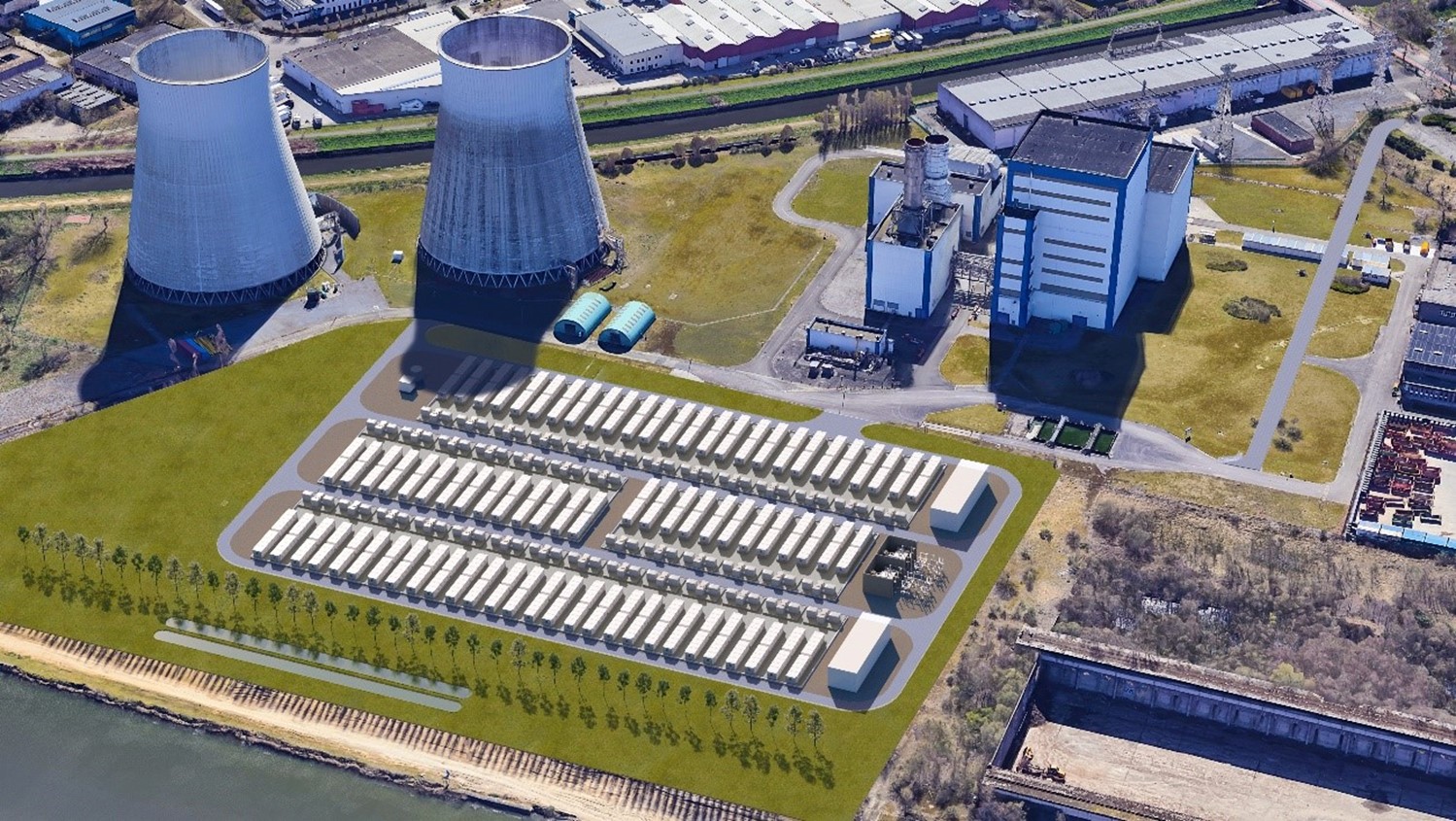Renewable energy plays a key role in the fight against climate change. But sources like wind and solar are not always available, and the growing share of renewable energy generation can cause fluctuations in the electricity supply. Large-scale battery energy storage facilities are quickly becoming the essential link to absorb these imbalances and help support the electricity grid.
Storing 800 MWh of energy across 3.5 hectares
The battery energy storage system (BESS) park in Vilvoorde, Belgium, one of the largest in Europe, will cover 3.5 hectares – about the size of 3.3 football fields. The site will accommodate 320 battery modules, measuring 25 x 4 x 3 metres. Each of these will be combined with an inverter, a transformer, and the electrical installations required to connect them to the high-voltage grid. The park will consist of two 100-MW clusters, each connected to the 150-kV Elia grid via a 125-MVA step-up transformer.
When fully operational, the park will have a storage capacity of 800 MWh of power to release to the grid for four hours. This is equivalent to 160,000 5-kWh residential batteries that when fully charged, can cover the power consumption of a whopping 96,000 households.

The future battery energy storage system (BESS) plant in Vilvoorde, Belgium, one of the largest in Europe. Image ©ENGIE
Tractebel’s experts responsible for design review, site supervision, quality assurance and grid connection study
Tractebel’s Transmission & Distribution and Power Systems Studies teams, together with partner Laborolec, are acting as Owner’s Engineer for client ENGIE Flexible Generation to carry out the following support activities throughout the implementation of the project:
- Review of design documentation as per ENGIE’s requests and defined at the start of the project: BESS, grid connection, connection to transmission substation, civil works, layout, electrical, instrumentation and control, and mechanical Balance of Plant (supporting components and auxiliary systems)
- Organization of the document management system
- Site supervision and activities
- Quality assurance (factory acceptance tests)
- Health and safety support during design review
- Grid connection study showing compliance of the plant to the grid code
Our experts began their mandate in November 2023. The project consists of two phases, with 100 MW of batteries to be commissioned in September 2025, and another 100 MW slated for January 2026.
The ENGIE Group plans to install 10 GW of battery storage worldwide by 2030.
Why battery energy storage systems?
When there is an abundance of wind or solar energy, batteries can store electricity and inject it back into the grid at times when there is insufficient renewable generation. Their contribution will become increasingly important in the coming years, both in case of shortages and possible oversupply during the warmer months.
“Tractebel’s teams are proud of the key role we have in the Vilvoorde energy storage park. The project will bring Belgium closer to its renewable energy targets, thereby also helping to pave the way for Europe’s ambitious emissions reduction goals,” says Filip De Vrij, Tractebel Project Manager. “As the transition to renewable energy continues to forge ahead, battery storage systems are the way forward to compensate for fluctuations in renewable generation. From now on, expect to hear a lot more about BESS projects.”

Filip De Vrij, Tractebel Project Manager






